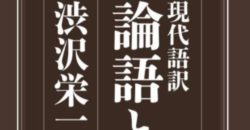Characteristics of the Japanese: Strengths and Weaknesses
By Ryoji Shimada, staff writer
It is said that Japanese people are diligent, and I think that has not changed. If you ask a Japanese person or perhaps a foreigner what the characteristics of the Japanese are, the answer will probably be the same :diligence. Diligence is a good characteristic, not a bad one. So what are the bad characteristics of Japanese people?
Chie Nakane, the first Japanese woman to become a professor at the University of Tokyo, passed away in October 2021. She was a social anthropologist. She was famous for her straight to the point talk. She was not only the first female professor at the University of Tokyo, but also the first female member of the Japan Academy, and the first woman in academia to be awarded the Order of Culture.
According to her keen observation, Japanese people have the following bad characteristics.
- Focusing on the company name rather than the job title
- Inability to engage in logically developed discussions (crushing opposing views)
- Putting empathy before dialogue to maintain harmony

I myself have worked in three companies that have been in business for more than 100 years, and I have worked in organizations for more than 20 years. I have worked in three companies that have been in business for more than 100 years, and I have worked in organizations for more than 20 years. Based on such actual experience, I have to agree with Mr. Nakane's opinion.
In addition, Dr. Henry C. Mabie (1847-1918), who came to Japan nearly 150 years ago, listed the following points as characteristics of Japanese people.
Strengths
The Japanese are diligent and hopeful in their studies, both at the upper and lower levels.
Weaknesses
- Formalist, focusing on form over fact
- The negative effects of being obsessed with formality
- Westerners take a light of opposing views, but Japanese are relentless in their opposition, even cursing over trivial matters.
Henry goes on to say, "The Japanese are hard-working but formalistic. They do not accept those who disagree with them, and are quick to get angry over small things. At the same time, the Japanese are quick to forget, which would be a problem when it comes to becoming a leading country."
Eiichi Shibusawa, the father of Japan's modern economy, was also impressed with Henry's opinion and said that Henry's opinion was insightful.
I am sure that there are many Japanese who think that the opinions of about 150 years ago are still valid today. I would like foreigners coming to Japan to keep this characteristic of the Japanese in mind. Of course, not all Japanese people are like this. But there is no doubt that they still have this kind of tendency.


